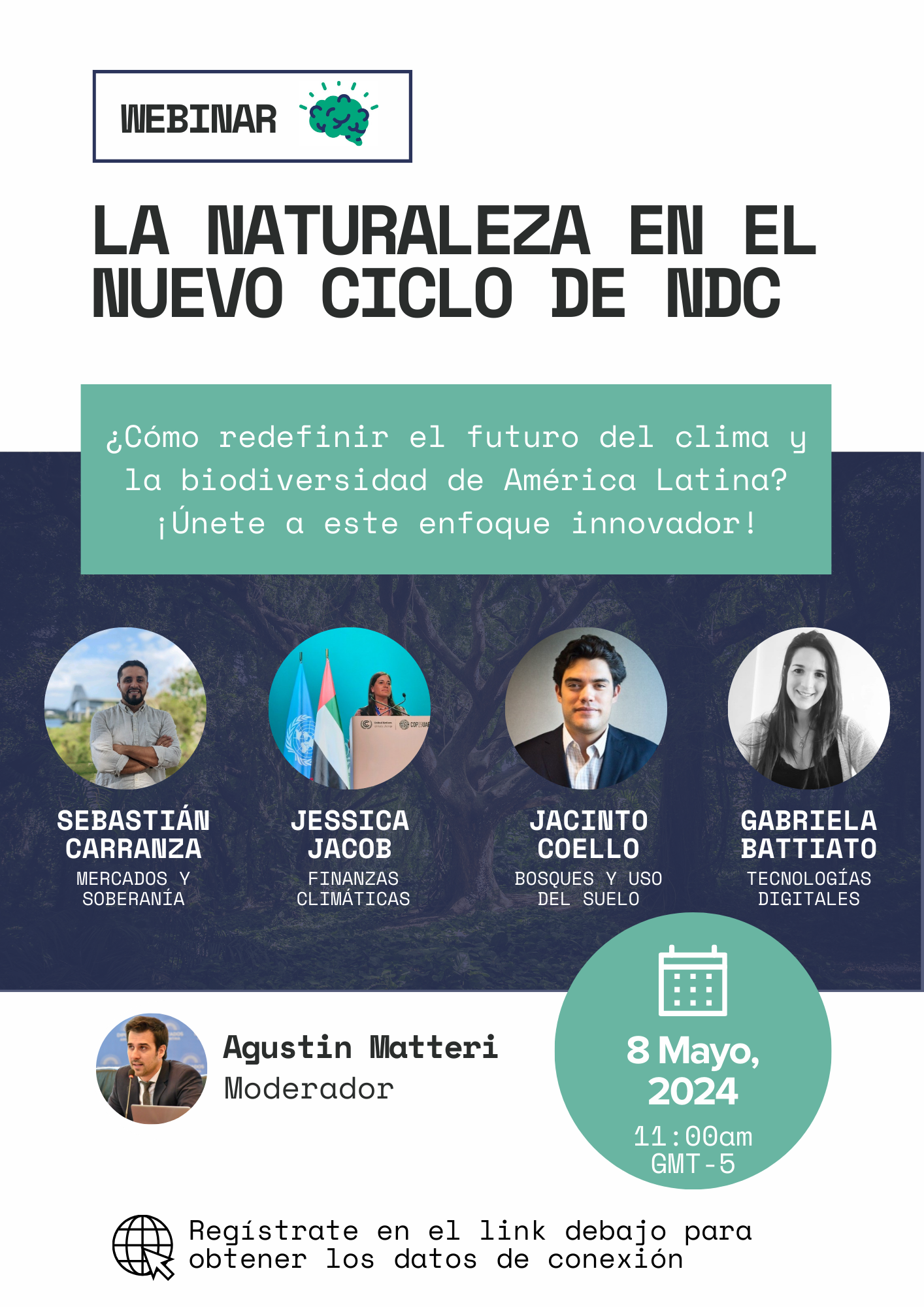“A Transformative Gathering: Joining Forces for Nature”
On Wednesday, May 9, 159 registered individuals and 55 active participants from 10 Latin American countries met virtually to explore the theme “Nature in the New NDC Cycle.” This gathering, which takes place at a crucial moment for the latinamerican region, aimed to discuss emerging opportunities in a year highlighted by international events on climate change and biodiversity in Colombia and Brazil.
Exploring the Climate Trilemma: Balancing Urgency, Transparency, and Integrity
Agustín Matteri, an expert in environmental law and policy, began the session by highlighting the challenge of what he calls “Climate Trilemma.” This trichotomy between urgency, transparency, and integrity has historically been an obstacle to progress in international cooperation on the issue. However, with a focus on Nature-based Solutions, an opportunity emerges for the convergence of effective and transparent actions, provided they can be financed at the required scale, which represents the greatest challenge.
Forging Strong Alliances: The Crucial Role of Public-Private Articulation
Javier Manzanares, a global leader in climate finance and former CEO of the Green Climate Fund, emphasized the importance of coordinated and consensual action between the public and private sectors. Effective dialogue and strong collaboration are fundamental to driving solutions with sustainable impact that lead us to the medium term in a much more stable manner.
NDCs 3.0: Platforms for Integral Transformation
Sebastián Carranza, an expert in climate governance, and former Director of Climate Change in Colombia, underlined the importance of the upcoming Nationally Determined Contributions (NDC) as an opportunity to integrate climate and biodiversity policies at national and regional levels. These NDCs should be detailed instruments with assigned responsibilities and timelines that guide public and private investments towards clear and measurable objectives.
Building a Common Language: From Taxonomies to Sustainability Protocols
Jessica Jacob, CEO of SURECO & Partners, highlighted the need to develop a common language between the environmental and financial sectors. Sustainability protocols like those in Brazil and Colombia and obligations to report environmental and social risks as in Honduras are examples of tools that can promote transparency and the integration of climate criteria in financial decisions, on which to build a regional space.
Overcoming Obstacles: Challenges in Financing and Land Tenure
Jacinto Coello, an expert in forest finance and former UN Environment Officer, emphasized the importance of addressing the obstacles in generating the necessary demand for innovative financial products being created around natural assets. Continuous capacity building on the ground and regulation related to land tenure are fundamental. The lack of demand and uncertainty about tenure rights are challenges that require collaborative solutions and greater legal clarity.
Technological Innovation for a Regenerative Future
Gabriela Battiato, a lawyer specializing in digital technologies, highlighted the potential of technology to drive regenerative solutions. The digital tokenization of natural assets and the use of blockchain can provide transparency and fair remuneration to those who protect ecosystems and enable the flow of their services.
Conclusion: Towards a Collaborative and Sustainable Future
The participants concluded that the creation of a Hub to scale Nature-based Solutions in Latin America would be a crucial step towards a sustainable future. This hub would foster inter-institutional collaboration and concrete action under programs and portfolios aligned with the NDCs, promote effective communication, and prioritize the inclusion of ancestral and community knowledge in all initiatives.
To watch the full webinar, click here.


